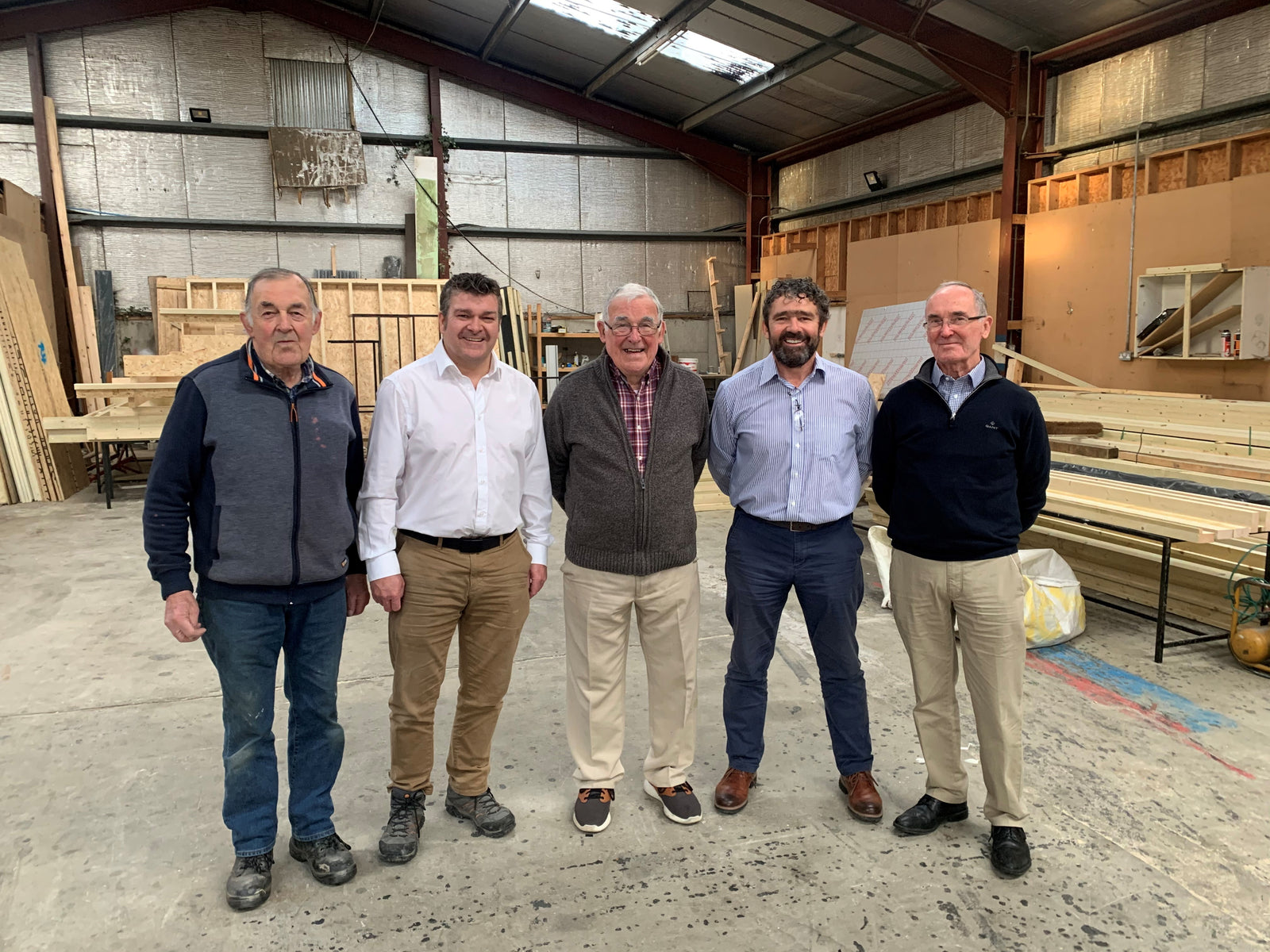
From the early days of Gribbin Construction, established in 1963 by brothers Joe, Eamon and Liam, the business has evolved over the decades into an innovative and dynamic construction company, specialising in the design and build of bespoke timber-frame homes and off-site modular construction.
In 2000, Mark and Niall Gribbin became current Directors of what is now named Setanta Construction and have grown the business from strength to strength, expanding into new markets and developing an extensive client base. They’ve also made significant business improvements over the years, not least by investing in a new 30,000 sq. ft purpose-built factory and offices, on a 15 acre site at Ronan Valley Business Park, Magherafelt to accommodate the continued growth of the business.
Since then, the business has transformed into a leading construction company that works to deliver prestigious projects for clients including Developer Paddy McKillen, of Claridge’s Hotel, London and The Richard Rogers Art Gallery, Aix-en-Provence, France.
According to Mark, “It’s incredible to think how far the business has come, not simply because of the amount of time that’s passed, but because of all the small wins and big successes over the past 60 years, you really do realise what has been achieved by us all”.
Acknowledging the core family values that still remain to combine a sense of tradition, teamwork and shared goals, he added,
“Our continued success has been made possible by the people around us and we’re fortunate to have an entire team of outstanding, highly skilled and reliable tradespeople, subcontractors and workplace professionals and as we look back over the decades, we extend a sincere thank you to all of them, including our clients.”
A business steeped in a history of developing sustainable construction practices and delivering green solutions, Setanta are long-time champions of energy efficient construction. Experts in the built environment, their use of modern technology and traditional craftsmanship combine for a perfect solution to the challenges faced within the industry.
Mark says, “We’re recognised for our sustainable approach and we aim to play a key role in helping to drive transformational change throughout the sector by trying and testing new methods of construction. He continued, “Our innovative approach to delivering high quality, energy efficient buildings have progressed from more traditional building techniques to using specialist offsite manufacturing solutions, where the planning, design and construction process is managed by our in-house team for a more streamlined and efficient service”.
Last year, Setanta Construction launched a pilot test project, ‘SoLow’ passive homes, which when finalised has the potential to change how affordable homes are built for future generations. They enlisted the support of Ulster University’s Centre for Sustainable Technologies Research team and recruited a family of four who are currently undertaking a live research monitoring study of their SoLow Passive House, which is due to complete mid next year. The first research of its kind anywhere in Ireland, the live study will provide valuable insights into the different building components and technologies used to control factors such as air quality, temperature fluctuations and energy usage.
According to Niall Gribbin, Joint Director at Setanta Construction, “We’ve a lot of confidence in this project and we’re currently in discussions with various organisations including housing associations, so that’s incredibly exciting. We want to engage and connect with NI’s key influencers and stakeholders to help inspire, educate and promote more action towards sustainable construction”.
Looking towards the future and building on the success of the past 60 years, as well as learning from the challenges of today, Niall says,
“We’ll continue to work on residential and commercial construction projects and customise any project to suit the needs of our client. The shift towards Passive House construction is picking up pace and there’s a definite push for more sustainable construction methods throughout the industry”.
Finally he added, “There are significant challenges facing the industry including skilled labour shortages, rising fuel prices, concerning delays in infrastructure projects and many broader economic pressures, but the construction industry in Northern Ireland has proven its resilience many times and with the increasing use of new technologies and demand for off-site manufacturing, we’re hopeful for the future.”



